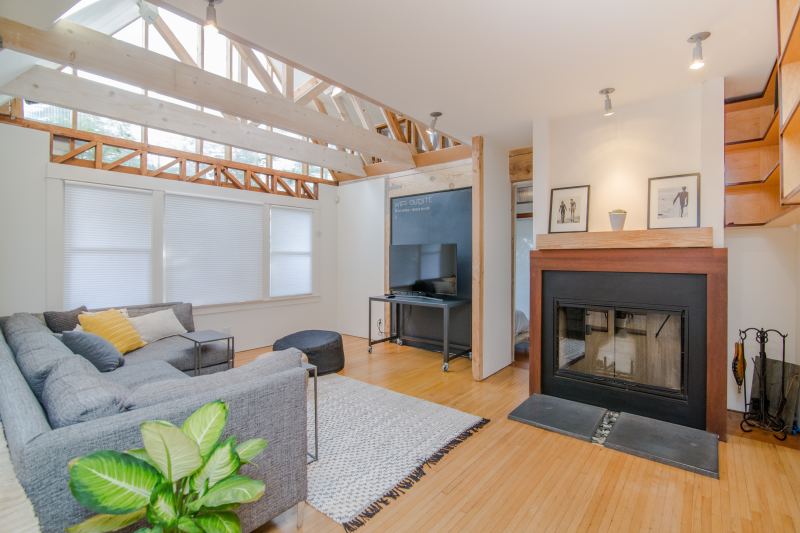Increasing your monthly income and reducing your taxes every year may sound nice, especially if you are just collecting rent without having to do all that hard work.
But there is more to buying an investment property than just collecting rent money. Rushing into something you do not fully understand can set you back more money than you initially realized. Research should always be done beforehand to find out if a rental property is something you really want to put your time and money into.
 Becoming A Landlord
Becoming A Landlord
You will not only be the landlord their money is going too each month, you will also be the go-to person when something breaks or needs sprucing up. If you work full-time on top of managing your rental property, it could get hectic trying to fit everything into your schedule. Keeping your tenants happy is key. Helping them when they need it right away gives you a good reputation because they will know they can rely on you for things. But if you are a people person and a great problem solver, being a landlord will come naturally for you.
If you have a lot of time on your hands because you are retired, being a landlord will be easier. You can jump up and fix any problem when it arises, and maybe fixing things and being a handyman is something you really enjoy too.
Successful property investors do not even have other jobs and are just able to fund their lifestyle with the money they are collecting. Do not expect to live this way right away, but with the proper investing and research, it could become your full-time job.
Property Management Companies
Hiring property management is a way you can still collect your rent money and still make sure your tenants are taken care of. Typically, they collect 4-10% of the profit.
If it is hard for you to confront people, especially if they are behind on rent, property management companies will handle the difficult situations for you. They will list your property for you, handle collecting the rent or evicting tenants when necessary, and taking care of the day-to-day tasks. You will not be collecting all the rent money yourself, but it is a great way to professionally handle certain situations and is great for people who may not always be around or travel often.
Know Your Location
People are always looking to rent, whether they are students or young couples looking to move into their first place together.
What makes your location perfect for having a rental property for people?
 Is it close to a college/university?
Is it close to a college/university?- Is there a grade school nearby for those with young kids?
- Are grocery stores conveniently located?
- Is it a quiet neighborhood or a busy street?
- Are there parks, beaches, or trails in the area?
- What is the job market like in your city?
- Is transit nearby?
Look into the turnover rate in the area too. If rental vacancies are common, you will want to set aside money that monthly rent would cover otherwise. Requiring your tenants to give an advanced notice if they will be leaving or charging a fine if they want to leave early, can help stabilize the turnover rate and your income.
If you are looking to sell in the future, particularly if you turned your basement into an apartment, looking into the market in your area will be beneficial. It may increase or decrease the value of your home, depending on the location.
Reducing Your Taxes
There are certain expenses you can claim every year come tax time. There are differences between what you can claim depending on if you have a rental property on the portion of your own residence, or if you have a separate property.
Claims can be made on:
- Mortgage interest
- Utility costs
- Property and management fees
- Property taxes
- Maintenance fees
- Advertising
- Security deposits (that are not being given back to tenant at end of lease)
- Payment to leave a lease early
If you have a rental property separate from where you are residing, you can claim a full amount of the expenses above. Having a rental property where you reside will let you claim a certain percentage, because you are sharing a property.
If you are renting a portion of the property in which you reside, the renting price has to be a fair market value in order to make claims.
 Getting Started
Getting Started
So, you have decided that an investment property is for you and you want to start the process. You have done the proper research and fully understand everything involved and what it is going to take. You have outlined your goals and understand the finances.
But where do you go from there?
Start small. There are many different types of properties to look at, but starting with a small rental, either on your property or separate, will give you a glimpse of what to expect.
As time goes on, start looking at other properties or buildings:
- Townhouses
- Condos
- Small family homes
- Large family homes
- Small apartment buildings
- Large apartment buildings
- Lofts
As you start expanding to different cities, and if you can afford it, remember property management is an option. Treat the different property management companies as you would real estate companies. Interview them to see who would work best with you.
Additional Costs To Budget For
When you are buying additional property, you are not paying your typical down payment of 5-10%, depending on how much your current home was. Instead, the percentage will increase to about 20% because mortgage insurance is not applicable for investment properties.
Budget for renovations and repairs too that may be needed to update your property. Certain requirements will need to be met and approved of.
You will need to pay for closing costs, which may vary in each case, but may include:
- Property inspection
- Deed preparation fee
- Company Fees
- Lender or loaner fees
Research, research, research. It is key to figuring out if this is the right thing for you. Talk to professionals to help get you started, write down everything in a budgeting journal, have a set plan before going into it.
Always be willing to work hard, learn quickly, and stay determined.
